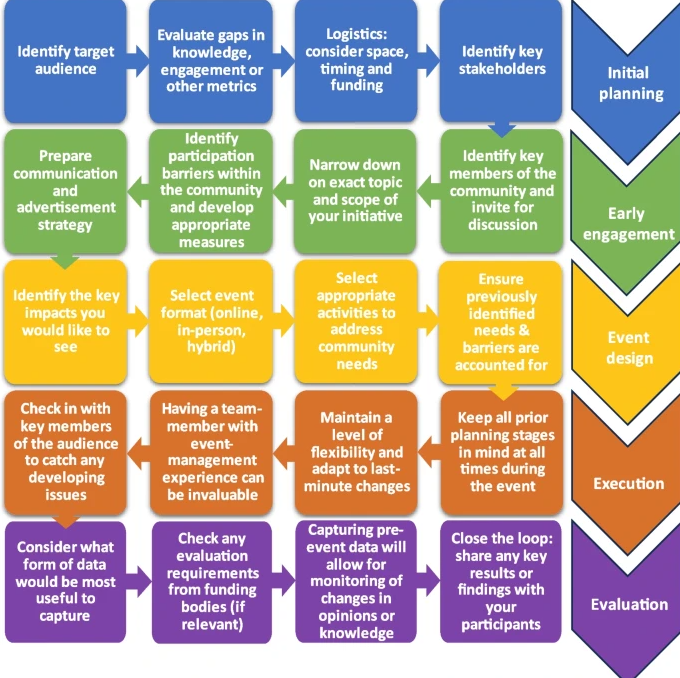SBI - Listening, Learning, Engaging
Research Spotlight
June 2025
Since 2010, SBI has been actively developing a comprehensive Education and Public Engagement (EPE) programme, with a dual focus on STEM education and public involvement in health research. Our EPE initiatives primarily engage secondary school students, aiming to spark interest in science, highlight career opportunities in STEM, and cultivate an informed generation of future researchers and citizens. In parallel, SBI is at the forefront of public engagement efforts in personalised medicine, with a strong emphasis on inclusivity and relevance to diverse communities.
In collaboration with partners across the country, we are increasingly focused on identifying and addressing barriers to participation faced by underrepresented communities. Now, two peer-reviewed publications aim to improve the overall impact of these efforts as well as providing empirical support of their efficacy.
The first of these publications (detailed below) provides an organisational framework for engaging minority communities in discussions around sensitive health topics such as cancer, rooted in culturally responsive and ethically sound approaches. An upcoming publication will expand on this work by presenting perspectives from adult cancer patients in Ireland on donating biological and genomic samples for research, underscoring SBI’s ongoing dedication to ethical, inclusive, and impactful public engagement.
The recently published study in Research Involvement & Engagement is entitled (opens in a new window)“Invisible Spectrum: A model for minority community public engagement in cancer research” and focuses on the story and impact of Invisible Spectrum, a minority engagement initiative which has been running for the past five years.
Led by Precision Oncology Ireland (POI), a Research Ireland co-funded cancer research consortium coordinated through SBI, Invisible Spectrum brings together researchers and members of the Bangladeshi community in Ireland, with the overall goal of breaking down communication barriers between the attendees and medical/scientific communities. In doing so, it is hoped the ongoing engagement with the community will encourage an interest in research, promote awareness of cancer symptoms and encourage uptake of cancer screening programmes.
A big part of Invisible Spectrum’s success has come from the people involved. Every year, community leaders play a central role in shaping the programme — helping decide what topics to cover, how to share information, and how to make the experience meaningful for their community. One of those leaders is Shayla Sharmin, a long-time collaborator with Invisible Spectrum and co-author of the paper. She said:
“As a Bangladeshi woman who has called Ireland home for decades, it meant a lot to be part of an initiative that recognised our place in Irish society. Invisible Spectrum gave us a chance to bring our experiences, our culture, and our voices to the centre of cancer research and awareness.”
Invisible Spectrum has also enjoyed significant support from the wider SBI community, with many members of operations staff and early-career researchers lending their time and expertise to the programme over the years, assisting with event organisation, presenting accessible research posters and acting as tour guides.
Survey data collected over 5 years demonstrates a number of key benefits to those who attended Invisible Spectrum events, such as increased awareness of cancer screening programmes available within Ireland and recognition of potential cancer symptoms. These results clearly demonstrate the efficacy of a culturally sensitive and community-led public engagement programme in delivering tangible benefits to an underserved group.
Additionally, the study distils lessons learned over the programmes 5-year lifespan into an organisational blueprint, designed to support other researchers in engaging with minority communities.
SBI & POI Director Prof. Walter Kolch said;
“Invisible Spectrum is something that we are truly proud of as it shows how effective a targeted and collaborative engagement approach can be. We hope that this publication will provide a valuable toolset to allow other groups to emulate what we have done and develop their own effective and culturally sensitive engagement platform.”

Invisible Spectrum organisational blueprint

Read more about SBI researcher's groundbreaking work in our series of "Spotlight" articles